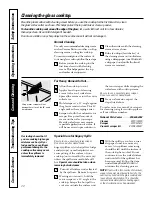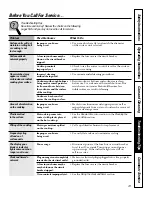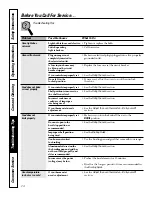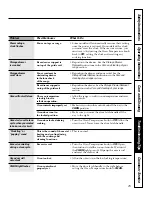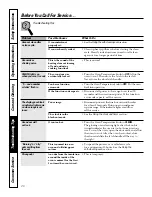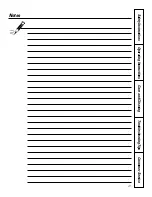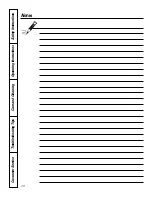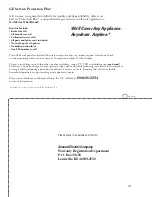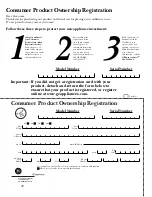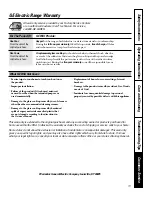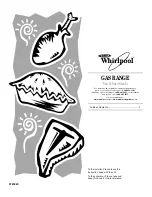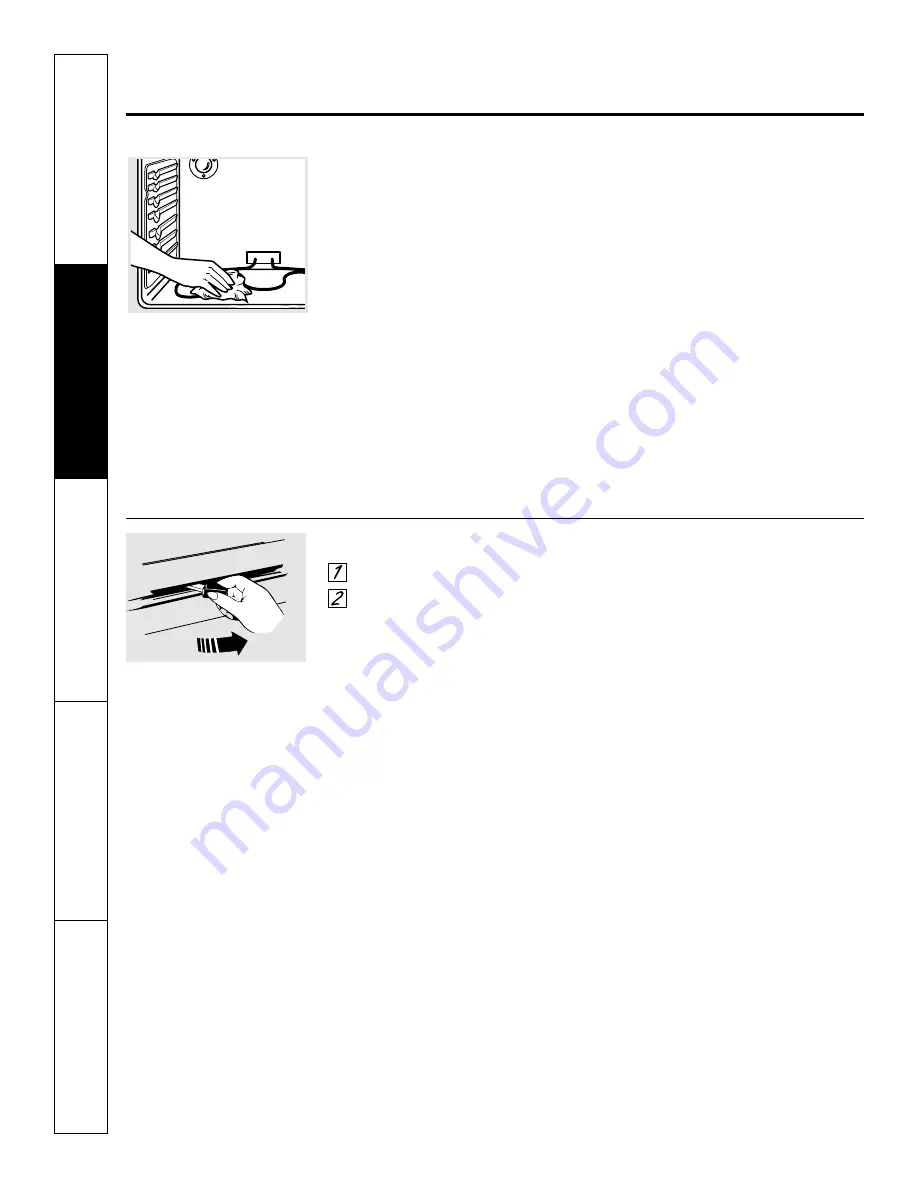
16
Customer Service
Troubleshooting T
ips
Care and Cleaning
Operating Instructions
Safety Instructions
Using the self-cleaning oven.
Never force the latch handle. Forcing the handle will damage the door lock mechanism.
Before a Clean Cycle
We recommend venting your kitchen
with an open window or using a
ventilation fan or hood during the first
self-clean cycle.
Remove the shelves, broiler pan, broiler
grid, all cookware and any aluminum foil
from the oven.
The oven shelves can be self-cleaned,
but they will darken, lose their luster
and become hard to slide.
Soil on the front frame of the range and
outside the gasket on the door will need
to be cleaned by hand. Clean these areas
with hot water, soap-filled steel-wool pads
or cleansers such as Soft Scrub®. Rinse
well with clean water and dry.
Do not clean the gasket. The fiberglass
material of the oven door gasket cannot
withstand abrasion. It is essential for the
gasket to remain intact. If you notice it
becoming worn or frayed, replace it.
Wipe up any heavy spillovers on the oven
bottom.
Make sure the oven light bulb cover is in
place and the oven light is off.
IMPORTANT:
The health of some birds is
extremely sensitive to the fumes given off
during the self-cleaning cycle of any
range. Move birds to another well
ventilated room.
Wipe up heavy soil on the oven
bottom.
How to Set the Oven for Cleaning
Latch the door.
Turn the Oven Temperature knob
to
CLEAN.
On some models, you must push the
knob in before turning.
Clean cycle time is normally 4 hours
and 20 minutes. On models with
COOK
TIME
and
START TIME
pads, you can
change the clean time to between 3 hours
and 5 hours, 59 minutes by using the
HOUR
and
MIN.
pads. The display will
show the clean time counting down.
When the
CLEAN
light flashes, slide the
latch handle to the left, and turn the
Oven Temperature knob to
OFF.
To stop a clean cycle,
turn the Oven
Temperature knob to
OFF.
Wait until the
oven has cooled and unlatch the door.





















